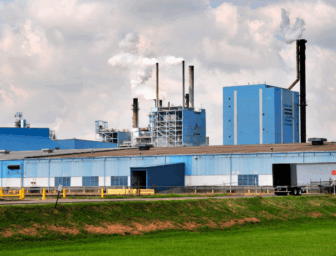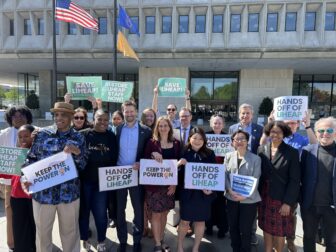1-8 vote could mean Maryland ratepayers will lose millions more to old, out-of-state mills that burn a dirty waste byproduct – instead of gaining new, job-creating clean energy
ANNAPOLIS – Today HB1102, known as the “black liquor bill” came one vote short, 11-8, of the 12 needed to advance out of the House Economic Matters Committee, just one day after a companion bill (SB 684) passed the full Senate with overwhelming, bipartisan support.
The bill would remove out-of-state black liquor, a dirty waste byproduct of paper mills, from Tier One, the top level, of the state’s Renewable Portfolio Standard (RPS). Doing so would help bring as much as 30 percent more renewable energy like wind power to Maryland over the next decade and reduce climate pollution by the equivalent of taking 275,000 cars off the road each year. The bill would also protect and create Maryland jobs, guaranteeing that the only major Maryland mill, Luke Mill, would retain its subsidy for as long as the 125-year-old facility continues to operate.
HB 1102 had the broad support of Maryland’s environmental and green business community, but was fought fiercely by out-of-state paper industry lobbyists and Dominion Virginia Power.
Tom Carlson, Maryland Campaign Director for the Chesapeake Climate Action Network, had the following response:
“We applaud the Senate, whose overwhelming endorsement of the bill exemplifies what a win-win this is for Marylanders. A few delegates sided with lobbyists for out-of-state companies and against the best interests of Marylanders by failing to advance this bill. If the black liquor loophole remains in state law, Marylanders could end up shoveling over $20 million more this year to out-of-state mills for energy that’s harming our health and climate. That’s money that should be generating new clean energy and well-paid jobs in Maryland. We’ll keep fighting to end this rip-off for Maryland’s consumers, environment and jobs. This will be one, if not the top environmental issue in Annapolis next year – guaranteed.”
Chris Hill, Conservation Representative for the Maryland Sierra Club, had the following response:
“This is hugely disappointing for Marylanders who expect our clean energy policy to mean more wind and solar powering our homes and businesses. This common-sense bill would increase the amount of renewable energy in the state by up to 30% without impacting electricity rates at all. By allowing this critical bill to die, the House Economic Matters Committee has failed to take what would have been a pivotal action to protect our families from more climate disasters and helping bring more job-creating clean energy to the state.”
Contact:
Tom Carlson, 651-587-0730, tom@chesapeakeclimate.org
Kelly Trout, 240-396-2022, kelly@chesapeakeclimate.org
###




